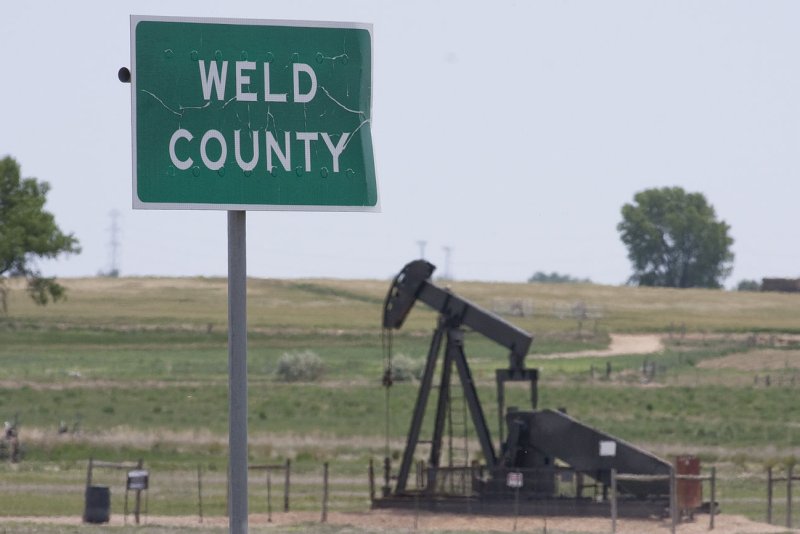Colorado oil production inhibited by the lack of pipeline capacity, a report from the Office of State Planning and Budgeting found. File Photo by Gary C. Caskey/UPI |
License Photo
June 21 (UPI) -- Pipeline limitations near the U.S. inland storage hub in Cushing, Okla., create headwinds for growth in Colorado oil production, a state report found.
Colorado crude oil production more than tripled since 2010 and now accounts for about 4 percent of the total U.S. crude oil production. Anadarko Petroleum, one of the larger operators in the states, reported sales volumes of 58 million barrels of oil equivalent. From the Denver-Julesburg basin in Colorado the company reported an average of 260,000 barrels of oil equivalent per day, an 8 percent increase from the same period last year.
Colorado oil production is holding at near-record highs, supported by relatively higher crude oil prices. The Office of State Planning and Budgeting, however, said further growth is constrained by a lack of pipeline capacity.
"While global oil demand continues to rise, and OPEC production limits remain in effect, pipeline limitations near the Cushing, Oklahoma distribution hub will likely constrain further growth of Coloradan oil production in the near term," the report read.
Higher crude oil prices are supported by efforts from the Organization of Petroleum Exporting Countries to dampen the oversupply situation that pushed crude oil prices below $30 per barrel in early 2016. West Texas Intermediate, the U.S. benchmark for the price of oil, was trading near $64.60 per barrel early Thursday.
On bottlenecks, the International Energy Agency said the capacity to move oil isn't keeping pace with new production. Meanwhile, aluminum and steel tariffs imposed by U.S. President Donald Trump "certainly have the potential" to slow down some pipeline projects, but probably won't derail them, its report read.
Job growth in Colorado is led by accelerations in the energy and construction industries. State data show the mining and logging sector, which includes oil and gas, is one of the fastest growing segments for job growth.
"The entrepreneurs, executives, and indeed the entire workforce in our state have helped make Colorado one of the strongest, if not the strongest, economy in the country," Gov. John Hickenlooper said in a statement. "While it's great to see potential revenue growth, we need to remain vigilant and cautious to safeguard the inevitable future downturn."
While the state economy is stable, the state report said there were risks from global trade policies. U.S. tariffs have threatened to spark a global trade war.















